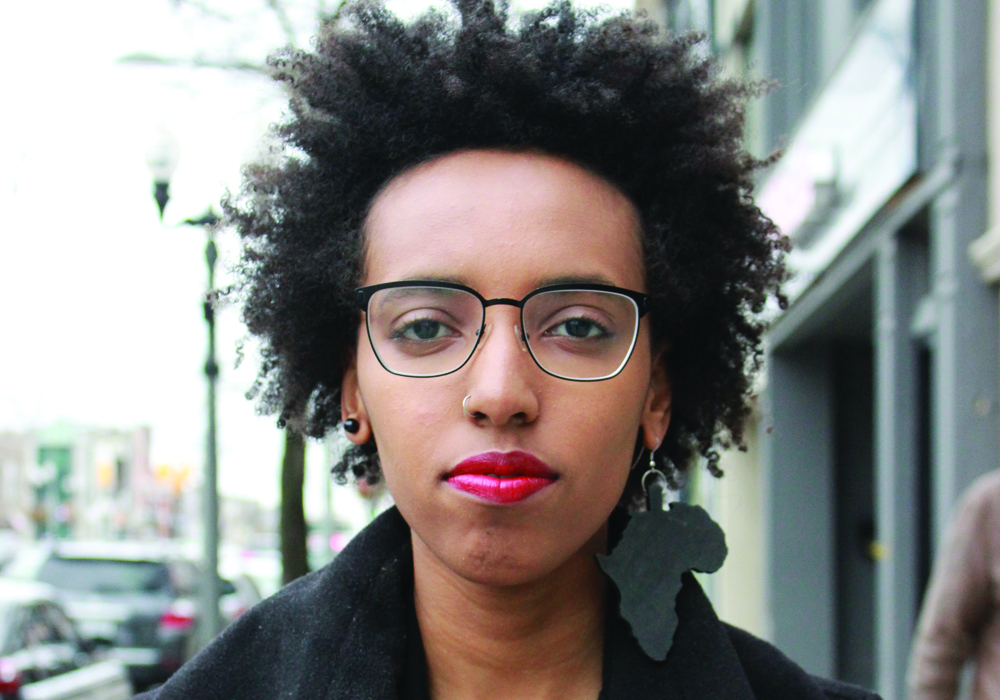Alexia Lawson, Arts Editor
A panel discussion was held Monday, March 14, tackling anti-black racism and carding, while discussing the Black Lives Matter movements, which was hosted by students from the course communicating social movements.
Five panelists led the conversation, including mental health worker and advocate Jasmine Mwanaisha, and spoken word artist and educator Zeinab Aidid.
The discussion condemned the racialized practice of carding, formally known as general intelligence gathering, often practiced by GTA police organizations.
Research has found black people are three times more likely to be carded by police in the GTA, with some statistics noting black children as young as nine years old have been carded.
Students from the class explained how carding violates the Canadian Charter of Rights and Freedoms, since police stop and collect information from people they do not suspect activity from.
“I think that it’s perpetuating the idea that black people are criminals and they need to protect other people from us,” says Aidid.
Mwanaisha believes carding has negative impacts on an individual’s mental health. She uses the analogy of stress being like boiling water. “That racist experience turns on that boiled water, and it boils and boils. Then, you turn the corner and there’s another racist experience, and the water keeps boiling. There’s no real relief to it. So think about living with that stress from age nine to the day you die.”
Concerning racial profiling on university campuses, Aidid believes it problematically excludes certain students. “The thing about racial profiling on campuses is it reminds black kids they shouldn’t be here,” says Aidid.
“When they see a black student walking on campus, the first thing they ask is ‘do you go here? Can I see your Yale ID?” Aidid says, describing her brother’s experience as a black male student at Yale University. “I know York has big issues with students getting racially profiled and asked if they’re supposed to be here.”
Aided also questioned the frequent accusation of York’s high crime rates as being the result of its proximity to Jane and Finch. “The problems that are happening at York, like sexual assault, are not crimes of poverty,” she says. “Crimes of poverty are things like gang violence, robbery, things like that. Those are associated with people being impoverished.”
York United Black Students’ Alliance claim racial profiling at York plays out differently from other campuses, namely for its connection to the Jane and Finch community. “That’s also where much of the policing is done,” says Arden Maalik, VP advocacy of YUBSA. “Over the years, there has been discussion about increasing security on campus, as well as building a police station nearby and implementing a key card system, which activates after a certain hour. These are strategies we believe were brought up to mainly target people of the Jane and Finch community and keep them out.”
The panel continues ongoing discussions regarding anti-blackness and institutionalized racism on campus. Alexandria Williams, York Federation of Students executive and future VP equity, is vocal concerning these matters. Williams continues to call out the lack of black faculty on campus, the gentrification of the Jane and Finch community, and the lack of response from the university concerning anti-black racism, including racist slurs made during a YUBSA solidarity event back in November.
“There’s definitely something that needs to be talked about and investigated, because black students, especially on this campus, are moving throughout our hallways in a much different way,” says Williams.
Part of her platform as VP equity for the 2016-17 year includes establishing a task force for anti-black racism.
Panelists and attendees believe dialogues such as these are useful in offering a platform to open up about experiences, and ideally, finding solutions.
Tweet us, @excaliburYU


